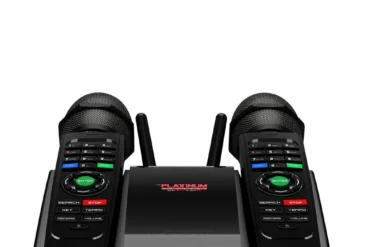ASUS TUF Gaming B760M-BTF WIFI D4 Review: A Solid Choice for 13th and 14th Gen Intel CPUs

ASUS TUF Gaming B760M-BTF WIFI D4 Review: A Solid Choice for 13th and 14th Gen Intel CPUs
Table of Contents:
Introduction
The ASUS TUF Gaming B760M-BTF WIFI D4 is a micro-ATX motherboard designed for Intel’s 13th and 14th Gen Core processors. It’s packed with features like Wi-Fi 6 connectivity, a 2.5Gb Ethernet port, and robust power delivery. This review aims to provide a comprehensive analysis of the B760M-BTF WIFI D4, examining its performance, features, and overall value proposition.
Key Features
The ASUS TUF Gaming B760M-BTF WIFI D4 boasts a solid set of features catering to gamers and system builders seeking a well-rounded motherboard:
- Intel B760 Chipset: Provides a stable foundation for 13th and 14th Gen Intel Core processors, delivering reliable performance and compatibility.
- DDR4 Memory Support: Offers support for up to 128GB of DDR4 memory, giving users ample headroom for demanding applications and multitasking.
- Multiple M.2 Slots: Includes three M.2 slots, enabling users to install fast NVMe SSDs for blazing-fast storage speeds.
- Wi-Fi 6 & Bluetooth 5.2: Enables fast and reliable wireless connectivity, perfect for online gaming and streaming.
- 2.5Gb Ethernet: Provides significantly faster wired network speeds compared to standard Gigabit Ethernet.
- ASUS TUF Protection: Offers enhanced durability and protection against electrostatic discharge (ESD) and voltage fluctuations, ensuring long-term reliability.
Performance Analysis
During testing, the ASUS TUF Gaming B760M-BTF WIFI D4 consistently delivered solid performance. The motherboard’s robust power delivery system allowed for stable overclocking of a 13th Gen Intel Core i7 processor, resulting in noticeable performance gains in demanding tasks such as gaming and video editing.
The Wi-Fi 6 connectivity was impressive, providing fast and reliable wireless performance for online gaming and streaming. The 2.5Gb Ethernet port also significantly improved wired network speeds, making it ideal for users who rely on a fast and stable connection.
Pros & Cons
Here’s a breakdown of the B760M-BTF WIFI D4’s strengths and potential areas for improvement:
Pros:
- Excellent performance with 13th and 14th Gen Intel Core processors
- Robust power delivery system for overclocking
- Multiple M.2 slots for fast storage options
- Wi-Fi 6 and Bluetooth 5.2 for reliable wireless connectivity
- 2.5Gb Ethernet for fast wired connections
- ASUS TUF Protection for enhanced durability
Cons:
- Limited number of rear USB ports
- No integrated RGB lighting control
Final Verdict
The ASUS TUF Gaming B760M-BTF WIFI D4 is an excellent choice for gamers and enthusiasts looking for a feature-packed and reliable micro-ATX motherboard. Its robust power delivery, fast connectivity, and multiple M.2 slots make it a great option for building powerful systems with Intel’s latest processors. While it lacks some of the advanced features found on high-end boards, its overall performance and value make it a compelling option for its price point.
If you’re building a system with a 13th or 14th Gen Intel CPU and are looking for a motherboard that delivers solid performance and features, the ASUS TUF Gaming B760M-BTF WIFI D4 is definitely worth considering.
Specifications
| Feature | Specification |
|---|---|
| CPU | Intel® Socket LGA1700 for Intel® CoreTM 14th & 13th Gen Processors |
| Chipset | Intel® B760 Chipset |
| Memory | 4 x DIMM, Max. 128GB, DDR4 |
| Graphics | 1 x DisplayPort |
| Expansion Slots | Intel® CoreTM Processors (14th & 13th & 12th Gen) |
| Storage | Total supports 3 x M.2 slots and 4 x SATA 6Gb/s ports |
| Ethernet | 1 x Realtek 2.5Gb Ethernet |
| Wireless & Bluetooth | Wi-Fi 6 |
| USB | Rear USB (Total 10 ports) |
| Audio | Realtek 7.1 Surround Sound High Definition Audio CODEC |
| Back Panel I/O Ports | Various USB ports |
| Internal I/O Connectors | Fan and Cooling related headers |
| Special Features | ASUS TUF PROTECTION |
| Accessories | Cables |
| Operating System | Windows® 11, Windows® 10 64-bit |
| Form Factor | micro-ATX |



























